Are you looking to boost your gut health with probiotics but don’t know where to start? Often called the ‘good’ bacteria, probiotics support a thriving digestive system and contribute to overall health. I’ve been doing a lot of research into this in order to gain a better understanding of how I can achieve this to live a healthier life. So, on this latest blog I’m looking at different probiotic strains and I’m finding out simple ways to incorporate them into your diet. You can also see which ones I’ve made from scratch and the results I achieved.
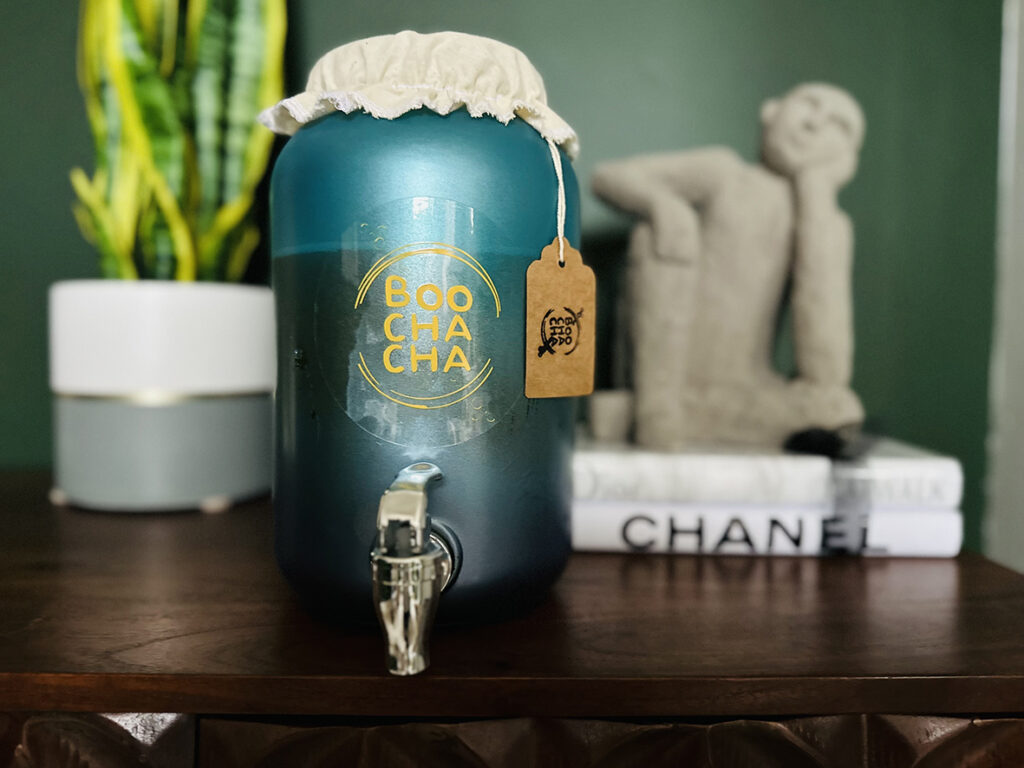
Things to consider…
- Probiotics are live bacteria and yeasts, which are beneficial for digestive health, and found in supplements and fermented foods. The common types are Lactobacillus, Bifidobacterium and Saccharomyces boulardii
- Incorporating probiotics into your diet through fermented foods like yogurt and kefir or supplements can improve gut health. But you should choose reputable brands and I think it’s a good idea to consult healthcare professionals for personalised advice
- I hear probiotics may help manage specific health conditions, such as irritable bowel syndrome and antibiotic-associated diarrhea; however, I can’t find enough evidence to fully back this upUnderstanding probiotics
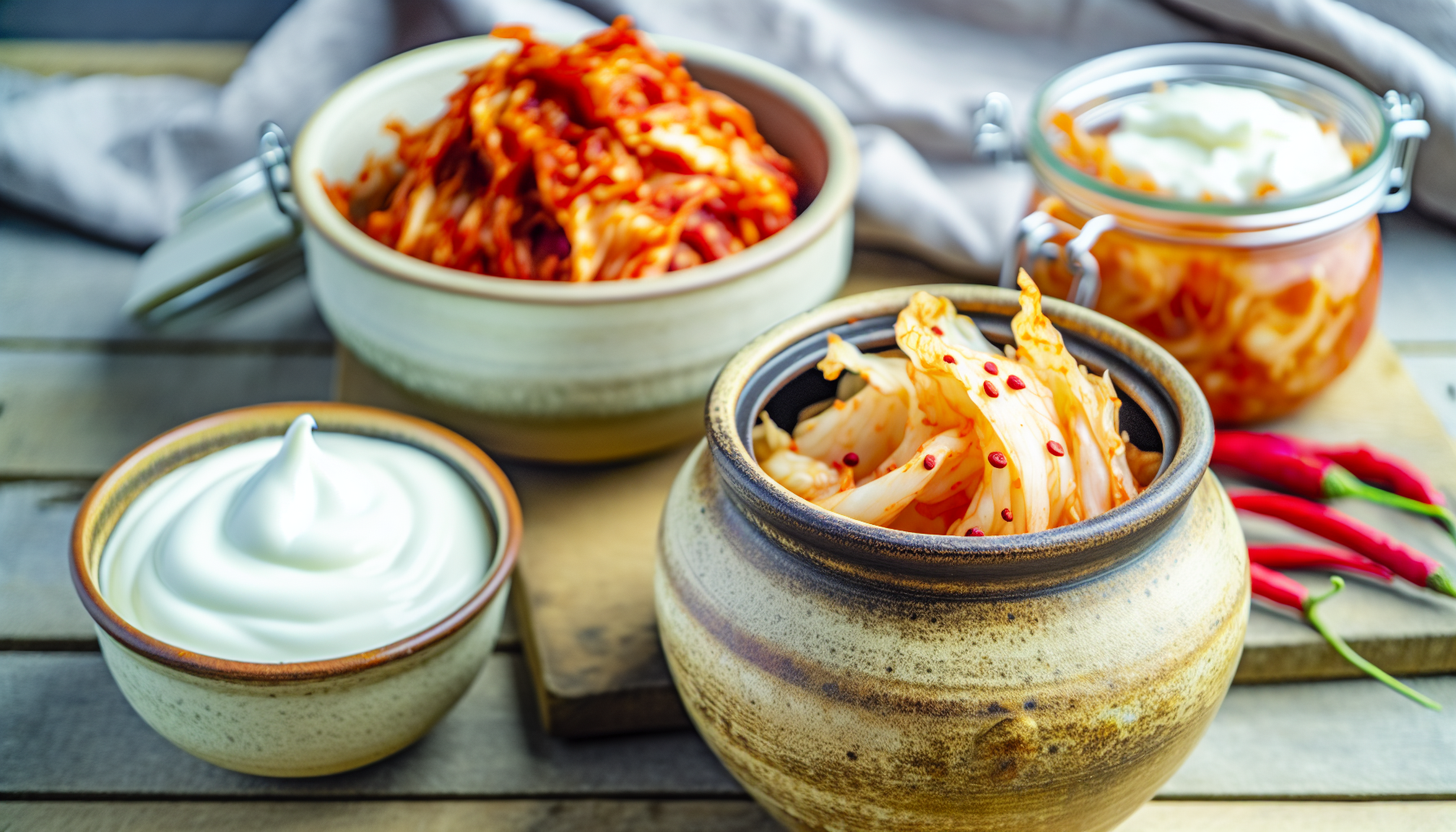
Probiotics are live bacteria and yeasts, which are particularly good for your digestive tract, working tirelessly to maintain a healthy gut microbiome and enhance your overall health. You can find probiotics in all sorts of things, ranging from dietary supplements to fermented foods, and they play a vital role in promoting digestive health.
But how do these probiotics work? I’ve discovered that they contribute to gut health by:
- Restoring the composition of the gut microbiome
- Introducing beneficial functions to gut microbial communities
- Preventing gut inflammation
- Helping maintain regular bowel movements
They are constantly working to keep our digestive system in optimal shape.
However, it seems not all probiotics are identical and the world of probiotics is vast. There are different strains, each with their unique health benefits and include Lactobacillus, Bifidobacterium, and Saccharomyces boulardii.
While consuming probiotics is generally safe for most people, I think it’s always best to consult a healthcare professional before you start. Also, not all probiotics are created equal and the effectiveness of probiotics can vary greatly between individuals, which can make things more confusing!
Types of probiotic bacteria
Now one of the most commonly known types of probiotic bacteria is Lactobacillus. This can contribute to cardiovascular health, and can help you if you’re lactose intolerance.
Another major type is Bifidobacterium. This type of probiotic bacteria is known for its role in digestion and its ability to fight off harmful bacteria. It also enhances the immune system and can help prevent conditions such as eczema. This is atopic dermatitis, which runs in my family – I tend to get it with psoriasis on my hands.
And then there are less common types such as Saccharomyces boulardii. While not as well-known as Lactobacillus and Bifidobacterium, this strain can still pack a punch in terms of health benefits and you find it in certain dietary supplements and fermented foods.
Incorporating probiotics into your diet
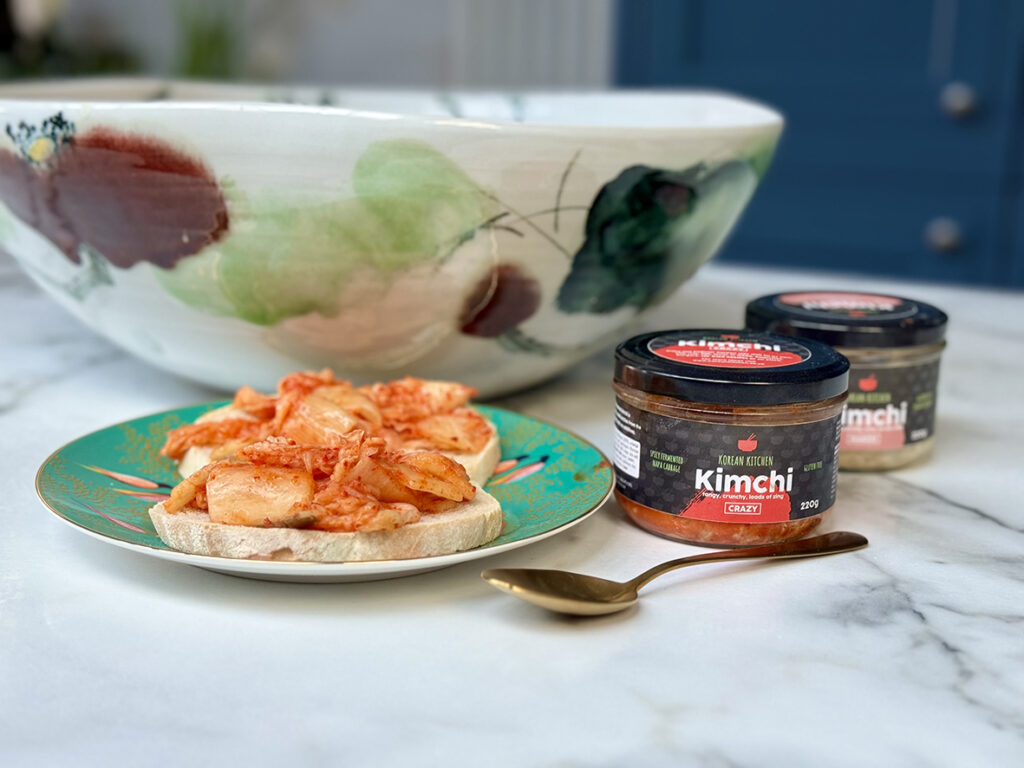
So, what are the ways to incorporate these beneficial bacteria into your body? One of the easiest and most enjoyable ways is through your diet. By incorporating probiotic-rich foods into your meals, you can infuse your body with these beneficial bacteria. So, this will promote a healthier gut microbiome and reap the health benefits of probiotics. Some examples of probiotic-rich/fermented foods that I’ve found include:
- Yogurt
- Kefir
- Sauerkraut
- Kimchi
- Kombucha
- Miso
- Tempeh
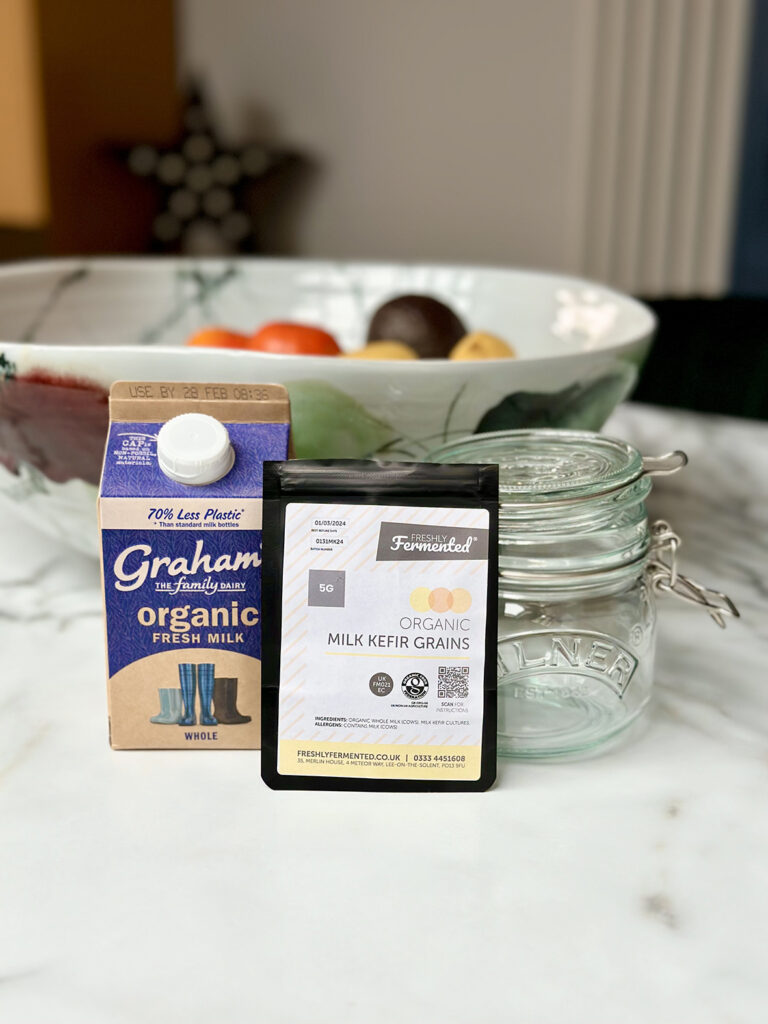
In fact, adding these foods to your diet can help support a healthy gut and overall well-being. I’m finding that some of these foods are not only delicious but also packed with live bacteria that can boost your gut health. So if you eat these foods, they can be a fun and tasty way to get your daily dose of probiotics.
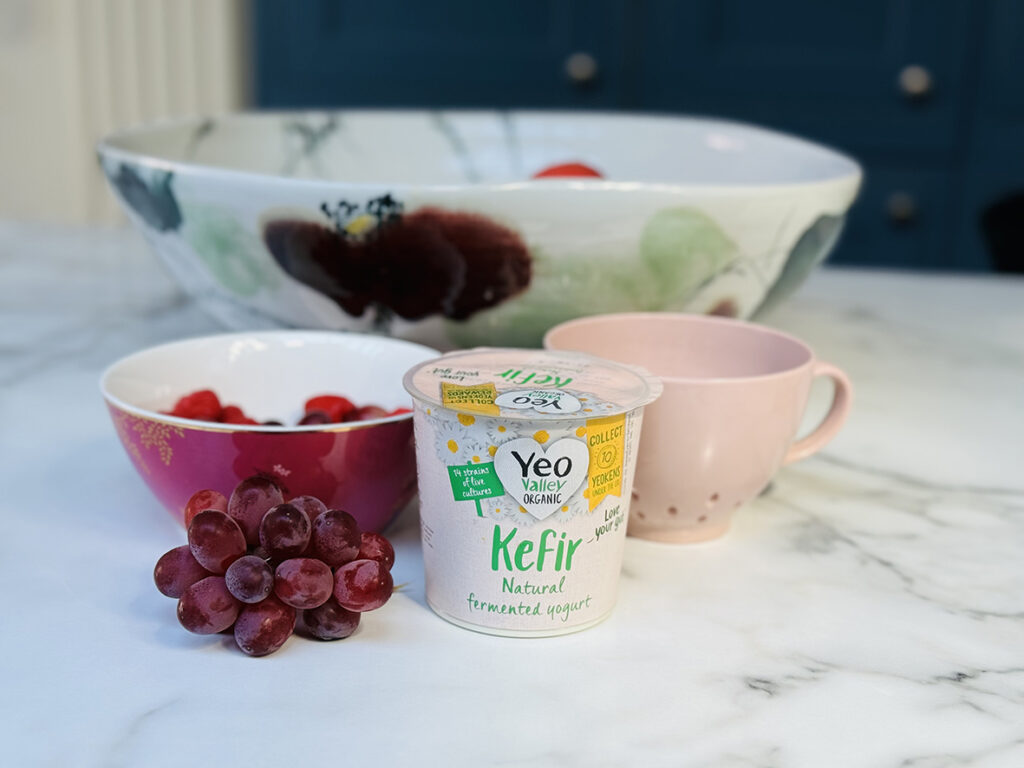
Can you get these in supplement form?
Probiotic supplements are available, which serve as another method for integrating probiotics into your diet. These supplements are a convenient and efficient way to ensure you’re getting a healthy dose of probiotics, especially if you have dietary restrictions or you don’t have access to a wide variety of fermented foods.
Fermented food benefits
What makes fermented foods stand out for me? Fermented foods are a treasure trove of probiotics. I love the fact that they not only enhance digestion but also have a profound impact on immune function and nutrient absorption for brilliant gut health.
When you consume fermented foods, you ingest millions of beneficial bacteria that settle in your gut and help maintain a healthy gut microbiome*. Apparently, these bacteria assist in the digestion process, breaking down complex carbohydrates and proteins, making it easier for your body to absorb nutrients.
I’ve read that fermented foods are also packed with immune-boosting properties. They stimulate the immune system, enhance the diversity of gut microbes, and even possess antiviral activities. So, if you incorporate fermented foods into your diet, you can strengthen your body’s natural defences and stay healthier overall.
The benefits of fermented foods include:
- Improved digestion
- Enhanced immune function
- Increased nutrient absorption
- Reduced inflammation
- Improved gut health
- Enhanced mood and mental health
Fermented foods can also carry anti-oxidant, anti-microbial, anti-fungal, anti-inflammatory, anti-diabetic and anti-atherosclerotic (thickening/hardening of the arteries) properties. However, while fermented foods offer numerous health benefits, they should be consumed as part of a balanced diet. After all, variety is the spice of life – and your diet should be too!
Probiotic supplements explained
While fermented foods are a fantastic source of probiotics, they’re not the only way to give your gut health a boost. Probiotic supplements are another option you could consider. They offer a convenient way to incorporate probiotics into your diet. This could be ideal if you’re not a fan of the taste of fermented foods or if they’re not readily available in your area.
Probiotic supplements, which are a type of dietary supplement, are available in various forms such as capsules, tablets, powders or liquids. So you can easily integrate these into your varied lifestyle needs. They’re also available in different strains and strengths, allowing you to choose a supplement that best suits your health needs.
When it comes to probiotic supplements, as with any supplement, quality varies greatly among brands. It’s also worth noting that not all supplements contain the number of live bacteria they claim. So, it’s essential to choose a reputable brand and don’t forget to consult a healthcare professional before you start taking them.
Remember, while probiotic supplements can be a beneficial addition to a healthy lifestyle, they should not replace a balanced diet. They are best used as part of a holistic approach to health that includes a varied and nutritious diet, regular physical activity and good sleep.
My review of Bio-Kult Everyday supplements
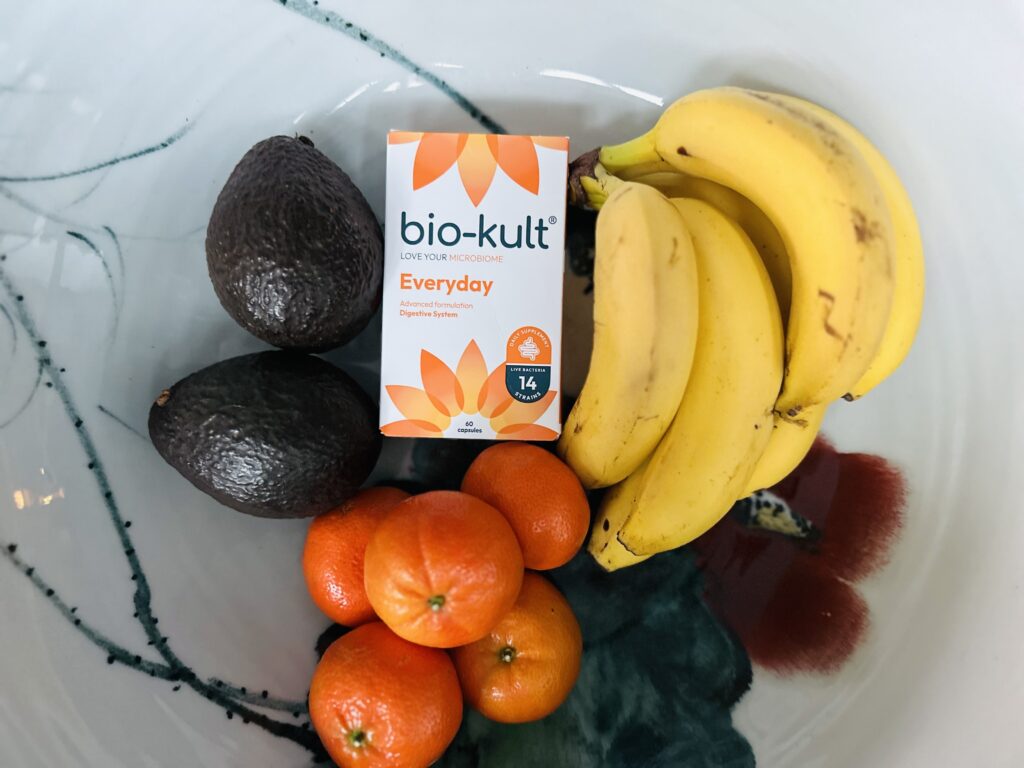
This is a science-backed supplement and the tablets are easy to swallow. They seemed to work during the period I took them although for me, personally, I really like fermented foods. So, I can definitely give you the thumbs up if you’re looking for something which is easy to take and you’re not a fan of the other options such as sauerkraut, kimchi etc. I took three tablets each day and they seemed to work well for me! I also love the fact that these don’t need to be stored in the fridge like some other brands and they are easy to take with food, too.
Gut *microbiome basics
When I watched Netflix’s interesting four-parter ‘You are what you eat: a twin experiment’, the term microbiomes featured throughout. In fact, Epidemiologist Tim Spector said on this show: “There are certain microbes that are associated with unhealthy foods, and there are others that are associated with healthy foods, and the ratio of these foods is really important. If we eat healthy foods, we get more and more species, more diversity, and you will actually acquire a healthier gut microbiome.”
But what is the gut microbiome? I’ve discovered it’s a diverse community teeming with trillions of microorganisms. These actually play a crucial role in digestion, immunity and overall health. These include not only bacteria, but also viruses, fungi, and other microbes, all living together in a delicate balance.
Some microorganisms help break down food, others produce essential vitamins and others still protect against harmful invaders. So, it’s an intricate system that’s crucial for your well-being.
However, the role of the gut microbiome extends beyond aiding digestion. It also plays a vital role in your immune system and I’m all for protecting mine. In fact, a large proportion of your immune cells reside in your gut. And these cells are heavily influenced by the microbes that live there.
The gut microbiome is unique to each individual and factors. So, diet, lifestyle and even genetics, can influence its composition. The next time you enjoy a probiotic-rich yogurt or take a probiotic supplement, remember that you’re not just feeding yourself; you’re also nourishing the trillions of microorganisms that call your gut home. What better way could there be to improve your gut health?
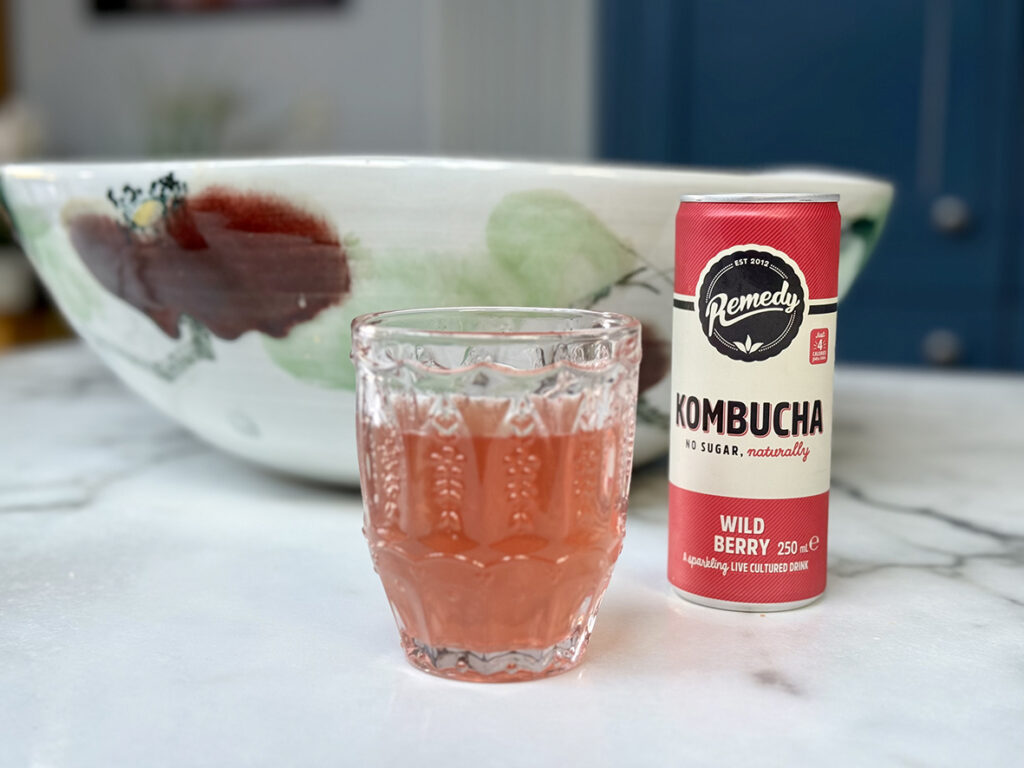
Recommended daily intake of probiotics
In the context of probiotics, I’ve been wondering what constitutes an adequate amount? From my reading, I’m finding that the recommended daily intake of probiotics can vary greatly. This can depend on individual requirements and health circumstances. However, if you want to concentrate on your digestive and immune health, I’ve found that a typical suggestion seems to be two or three servings each day.
Of course, the ideal intake of probiotics can depend on a variety of factors. This includes your current diet, lifestyle and overall health. For instance, your diet can greatly influence your need for probiotics. A diet rich in high-fibre foods can support a healthy gut microbiome, potentially reducing the need for additional probiotics.
I do have some words of warning to those who may be working their way through a huge amount of sauerkraut, for example, on a daily basis. Although exceeding the recommended daily intake of probiotics is unlikely to pose a life-threatening risk, it may give you discomforting symptoms like gas and bloating! So, adhering to advised intake levels is crucial unless your healthcare provider tells you otherwise.
Remember, when it comes to probiotics, it’s not just about quantity but also quality. I’ve discovered that consuming a variety of probiotics from different sources – such as fermented foods and supplements – can help to ensure a diverse and balanced gut microbiome.
DIY fermented foods
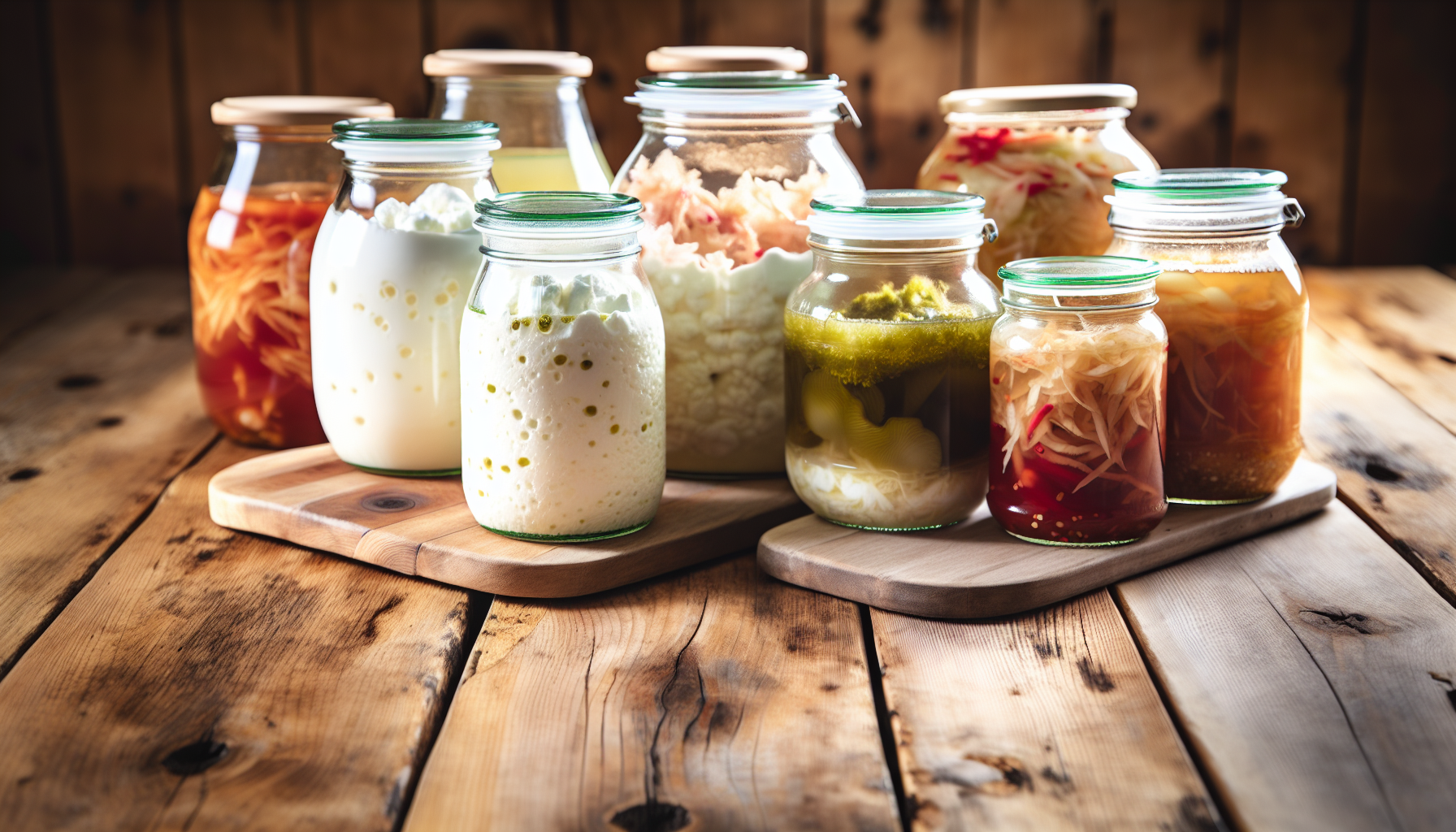
So, if you have a penchant for fermented foods and enjoy DIY projects, why not consider preparing your own fermented foods at home? It can be a fun and rewarding process. But it also allows you to control the ingredients and customise the flavours to your liking.
I’ve found that making your own fermented foods can be quite tricky however. For instance, to make kefir, all you need are kefir grains and milk. Sounds really easy right?! I did my research (naturally!) and I read that, with a bit of time and patience, you can create your own homemade kefir packed with probiotics. I tried this six times (seriously!) and I must admit I found the timings really hard to conquer. My issue was that I kept leaving it thinking it wasn’t fermented which led to it being over-fermented! It did work for me once however and, when it did, it tasted great.

Kombucha, a fizzy and tangy fermented tea, can also be made at home. The fermentation process for kombucha is around 21 days depending on the desired level of fermentation. So, I thought I’d try this instead to see how I got on.
My review of BooChaCha’s Complete Starter Kit for gut health
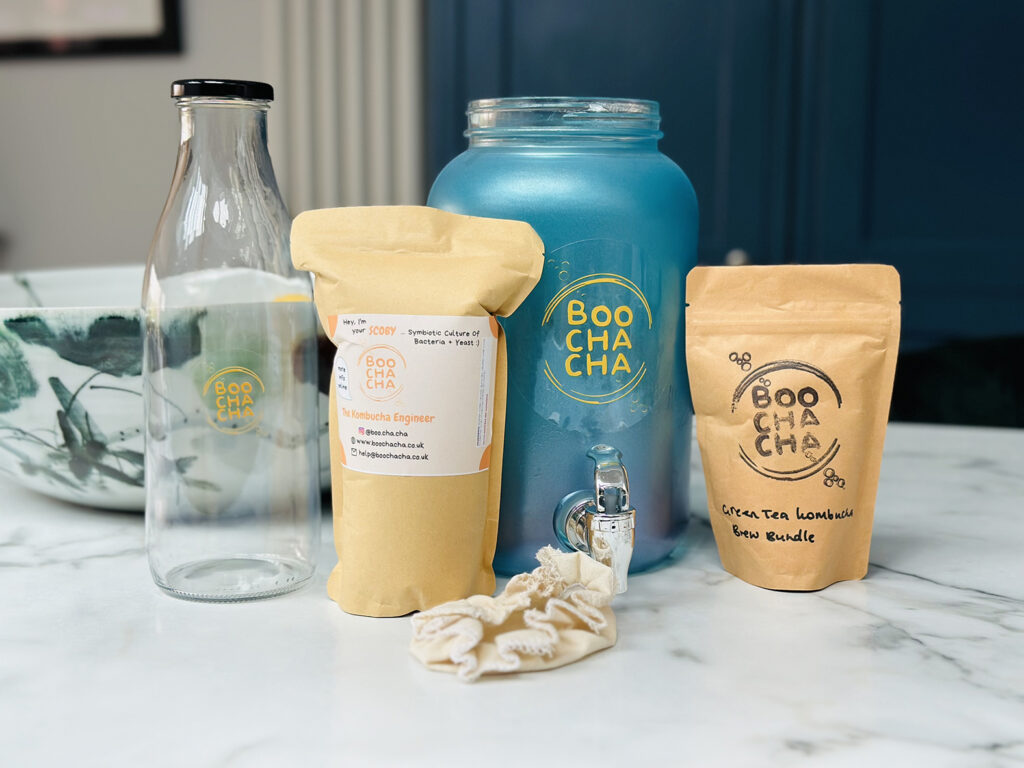
I discovered BooChaCha offers a complete starter kit for £79.95. This claims to give you everything you need to learn how to make natural Kombucha using tea and sugar. This offers what’s called a continuous brew method. This is billed as far easier than using traditional methods and expensive brewing equipment isn’t necessary. It’s also cheaper, healthier and tastier, with far less risk of contamination. So, it was with all of this in mind that I couldn’t wait to get started!
In the kit, I found a 3 litre glass fermentation vessel with tap, a 1 litre storage bottle for the fridge, a live SCOBY (Kombucha culture) stored with starter liquid, 1 handmade muslin shower cap with brew tags (my breathable lid), 2 green tea Kombucha brew bundles (each of which make 2 litres of kombucha) and a welcome pack with instructions plus a sticker thermometer!
When it came to making my first brew, the instructions were easy to follow. But I was pretty concerned it may not work for me because my kefir production had been such a disaster! However, there was no need to worry because the instructions were very clear and the results were delicious. I would definitely recommend this if you’re thinking about a super-easy, cost-effective way to take probiotics to help improve your health.
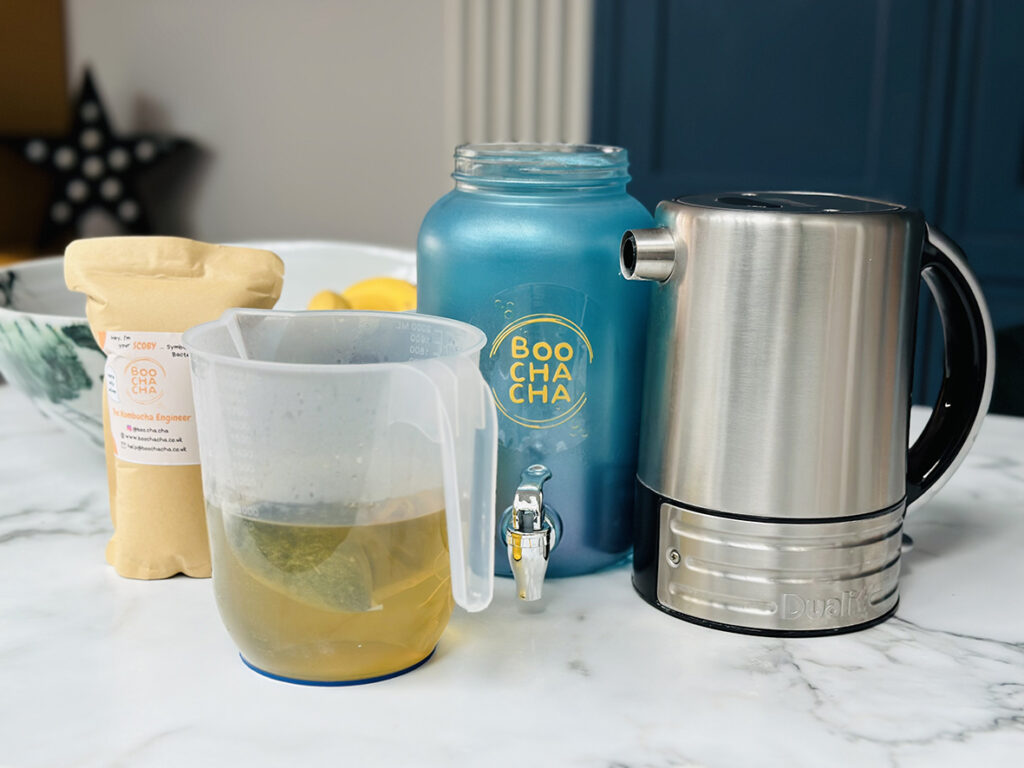
Making your own fermented foods not only gives you a fresh supply of probiotics. But this also allows you to experiment with different flavours and ingredients. You can even share your homemade fermented foods with friends and family, spreading your probiotic love!
Prebiotics: supporting probiotic growth
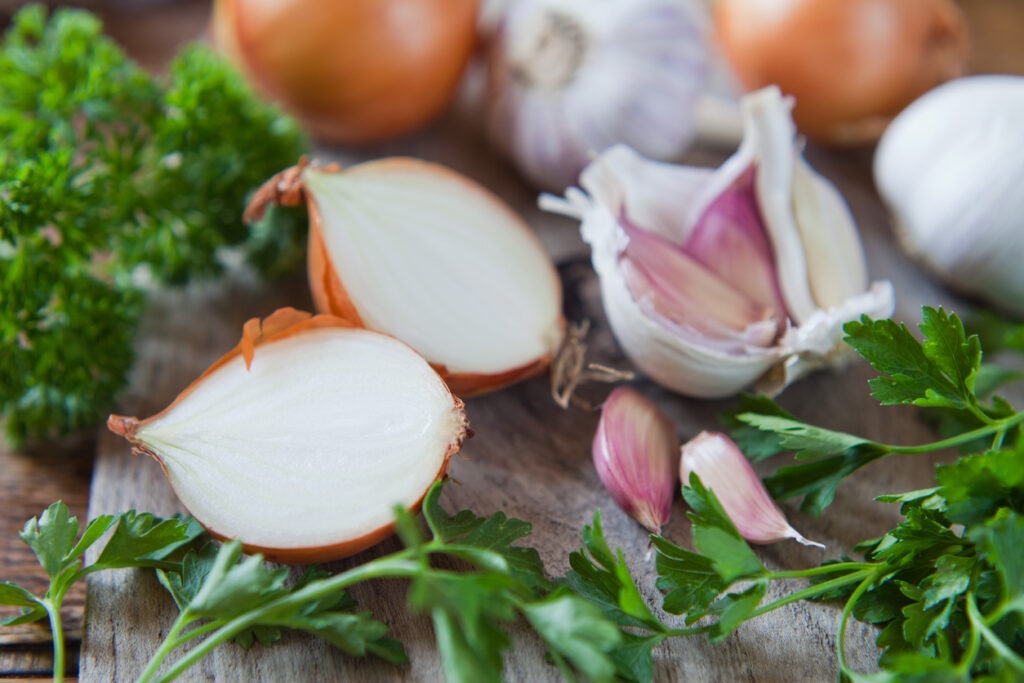
While probiotics often take centre stage, their indispensable allies – prebiotics should not be overlooked. Prebiotics are non-digestible food components that serve as food for probiotics, helping them thrive and perform their beneficial functions.
Prebiotics are found in a variety of foods, including onions, garlic, asparagus and artichokes. If you incorporate these foods into your diet, you can provide your gut bacteria with the nutrition they need to flourish. Prebiotics serve as a nutritional layer for probiotics, collectively encouraging improved gut functionality and overall digestive well-being. Therefore, when planning your next meal, consider incorporating some prebiotic-rich foods into your menu. Not only will your taste buds thank you, but so will your gut bacteria!
Are you ready to add probiotics to your diet?
Whether you’re a fan of tangy fermented foods, prefer the convenience of supplements or love the idea of making your own fermented goodies at home, there are plenty of ways to incorporate probiotics into your life. Remember, everyone’s gut microbiome is unique, so what works for one person may not work for another. I think it’s key to always listen to your body and adjust your probiotic consumption accordingly.
AD: I collaborated with BooChaCha and Bio-Kult in order to create this blog.





